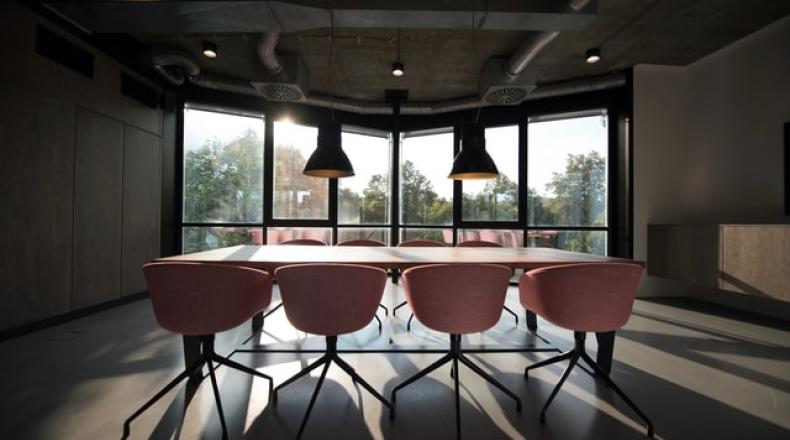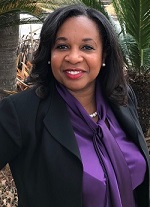Monday Message: Being the Only Black Person Around the Table

When I transitioned from the corporate world to the nonprofit world, I did not see a lot of people who looked like me. However, I worked for an organization that welcomed me with open arms. The executive director took a chance on me when I received my first fundraising position. He told me with my banking and customer service knowledge, I had ‘transferable skills’ that would make me a great development officer.
Upon accepting the position, I moved 1,226 miles from everything that was familiar to me to start this new career. To get immersed in the fundraising field, my executive director encouraged me to join two organizations—one was the Association of Fundraising Professionals.
I remember attending my first monthly AFP educational luncheon and being one of two African Americans in the room. When the luncheon was over, I spoke to the people at the table and then went to introduce myself, but the person had vanished. I told my mother I would go early the next month, hoping we could sit together. They did not attend that luncheon. However, a chapter board member came over and spoke to me, noticing that I was new to the chapter. He must have recognized the deer in the headlight expression on my face because he offered to meet for coffee and talk about the industry.
We met for coffee and had a delightful conversation about work, the city and family. This seasoned senior white male fundraiser became my mentor and ally. He pushed me to take advantage of every fundraising educational session available. He nominated me for the AFP Chapter board, and we chaired a conference together.
Once, after a coffee meeting, he made me promise to seek my CFRE once the time was right. He told me, “I have my credentials, but you will need your credentials” to be taken serious in this field. At the time, I did not fully understand what he meant, but as time went on, it became evident.
In 2003, there was a downturn in the market, and my organization went from eight frontline fundraisers to three. I was grateful to remain on staff, but it meant I had to move. Moving to a new city? No worries, I’ve done that before. However, I was not prepared for the lack of acceptance of diversity among the donors.
As a good fundraiser, you schedule multiple visits when you are on a road trip. After several lovely conversations on the phone prior to flying to the city, my first two visits went well. On the third visit, I was greeted at the door and was told, “You could not be the same person I spoke to on the phone.” I assured him I was.
Upon entering the home, he flatly stated, “I have never had a person of color in my home.” With that introduction, I knew it would be a short visit. After a half-hour of conversation, he shared with me his financial papers to donate an IRA. As I was leaving, he let me know that “I was a nice one.”
I walked away with many emotions, ranging from anger, disgust, humiliation, satisfaction and determination. I was grateful that was my last visit for the day, but I had one more the next day. On the flight home, I decided fundraising is a powerful profession, and I could be successful in challenging situations.
A few months later, as much as I loved the mission, I realized it was not a healthy environment for me. Because of the relationships I forged in my AFP chapter from a few years before, I learned about a new opportunity. Within three months, I was moving to another state for another fundraising position. I was ecstatic and hopeful for the future.
Upon joining the team, I received a ‘buddy’ to help me acclimate to the culture. While building relationships with the donors was a joy, the challenge was sharing my voice and not being visible. Shirley Chisholm, the first African American woman elected to Congress, once said, “If they don’t give you a seat at the table, bring a folding chair,” and it’s something that remains at the forefront of my mind.
Finding your voice and speaking your truth is important but not always well received. I had a meeting with a supervisor once who said she “did not see color” as if that would prove she was not a racist or exhibiting prejudiced behavior. If you do not see color, you do not see me—a black woman.
After that incident, I realized my validation does not come from my supervisor but from the success of my work and my accomplishments. The lack of visibility within the organizations I worked for is what pushed me in my career. I was—and still am—grateful my mentor encouraged me early in my career because it truly paid off for me.
This is my story. How are we getting more Black people a seat at the table?


 Carme Williams, CFRE, is the president of WilliamsCL Consulting LLC and senior consultant with Washburn & McGoldrick LLC. She also served as the first Black president of the AFP Greater Houston Chapter.
Carme Williams, CFRE, is the president of WilliamsCL Consulting LLC and senior consultant with Washburn & McGoldrick LLC. She also served as the first Black president of the AFP Greater Houston Chapter.